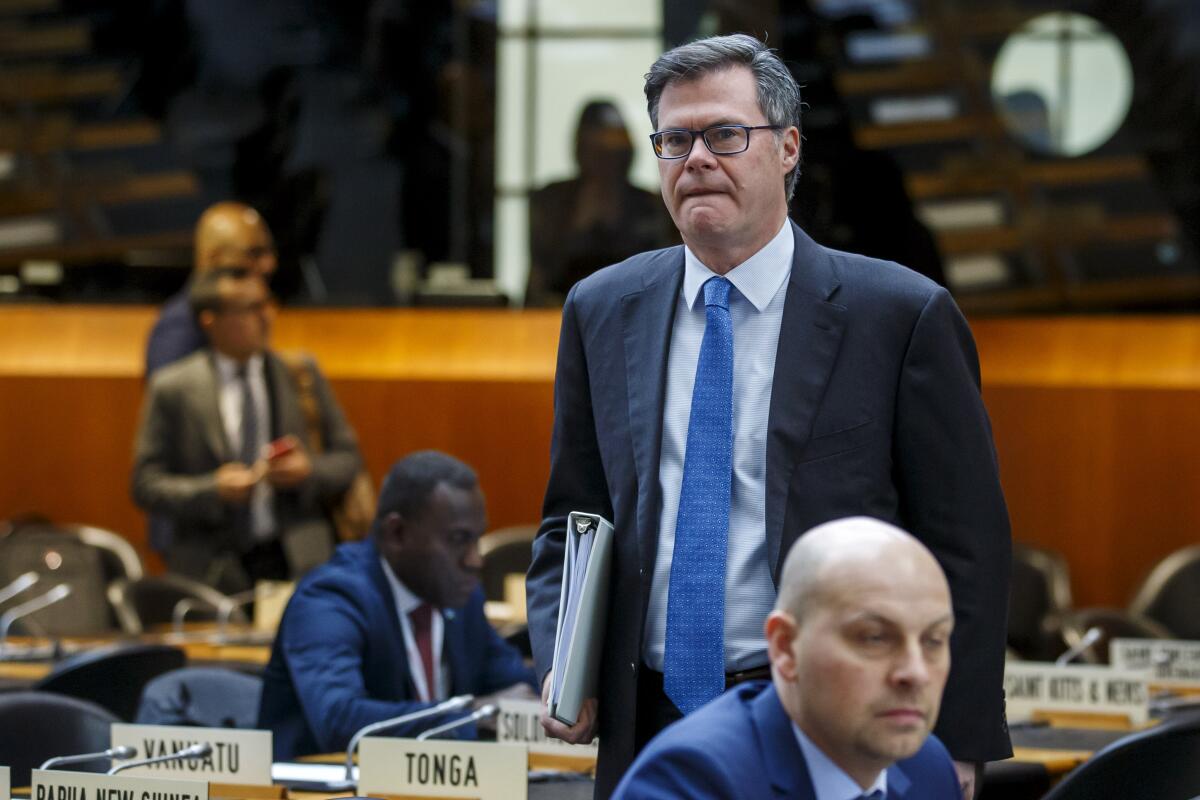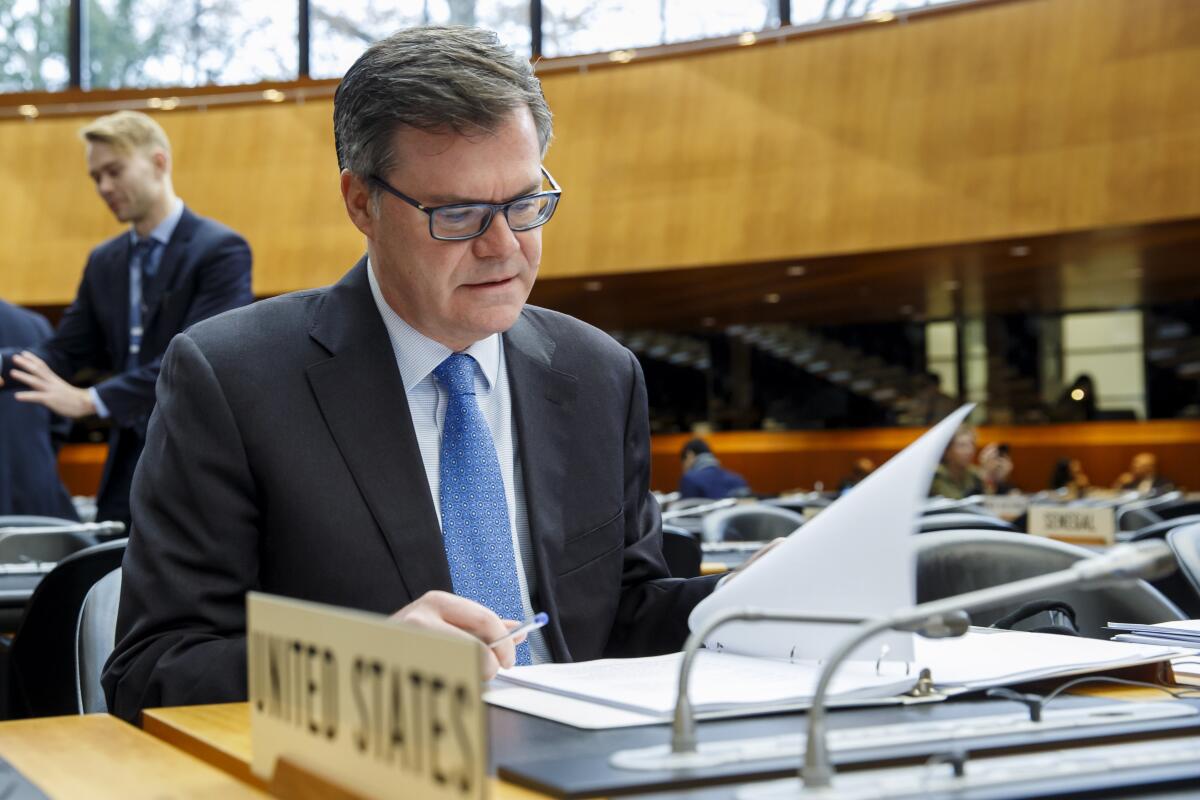U.S. is about to cripple the World Trade Organization’s dispute-settling system

- Share via
The governance of international trade is on track to suffer serious damage this week as the United States carries out a long-standing threat to cripple the World Trade Organization’s system for settling disputes.
The WTO’s Appellate Body, which adjudicates on contested rulings over disputes between member countries, will become unable to function when Washington exercises a veto and blocks new judges from being appointed to replace two whose terms of office are expiring.
U.S. Trade Representative Robert Lighthizer — who frequently tangled with the WTO in his former career as a lawyer for the U.S. steel industry — has repeatedly said the Appellate Body oversteps and creates law rather than interpreting WTO agreements. Trade officials say this week’s meeting in Geneva of WTO ambassadors from the organization’s 164 member countries will almost certainly be unable to persuade the United States to relax its hard line.
The European Union, which has sought to create a temporary alternative to the Appellate Body, is set to unveil a legal tool this week allowing it to impose trade sanctions against countries even after the WTO system freezes up. Although not explicitly aimed at the United States, the new enforcement regulation would allow the EU to raise tariffs against imports from countries that seek to frustrate WTO litigation by appealing cases to an Appellate Body that has ceased to function.
On Friday, Dennis Shea, the U.S. representative to the WTO, told other ambassadors in Geneva that other countries had not seriously tried to improve the dispute settlement process.

“The United States has ... articulate[d] our longstanding concerns with the functioning of the Appellate Body,” Shea said. “We have yet to see the same level of engagement from other members.”
The U.S. also has sought to paralyze the system by blocking budget allocations for the Appellate Body.
The EU has proposed an ad hoc temporary version of the Appellate Body while the full version is in abeyance, and so far it has recruited Norway and Canada. EU officials say they hope bigger economies such as China, Russia and Brazil will join their temporary system once the Appellate Body stops functioning.
The WTO would still be able to negotiate new agreements. But without an Appellate Body or an alternative system, any disputes appealed from the first panel hearing would be left in limbo.
The Appellate Body was created at the inception of the WTO in 1995. Panels of three judges drawn from a roster of seven with fixed-term offices hear appeals from dispute panels. The system can authorize trade sanctions if it finds a government in violation of WTO law. Some of the most contested issues in world trade — such as EU and U.S. subsidies to airplane makers Airbus and Boeing, respectively, and Chinese state support for Chinese companies — have been arbitrated through WTO dispute settlement.
U.S. Democratic and Republican administrations alike have long been unhappy with what they see as the judicial overreach of the Appellate Body. In particular, rulings by the body have repeatedly held that American anti-dumping rules, which allow the United States to impose tariffs against imports deemed to be priced unfairly low and to be damaging to U.S. producers, contravene WTO law.
The United States wants the Appellate Body to go back to what it says the body was originally intended to be: a technical revising body rather than a routine court of appeal.
The imminent seizing up of the Appellate Body has been met with dismay by many governments and business associations. Pierre Gattaz, president of the Confederation of European Business, said Friday: “The current system has provided massive benefits to business and consumers and is an essential element of the WTO.”
© The Financial Times Limited 2019. All Rights Reserved. FT and Financial Times are trademarks of the Financial Times Ltd. Not to be redistributed, copied or modified in any way.
More to Read
Inside the business of entertainment
The Wide Shot brings you news, analysis and insights on everything from streaming wars to production — and what it all means for the future.
You may occasionally receive promotional content from the Los Angeles Times.









